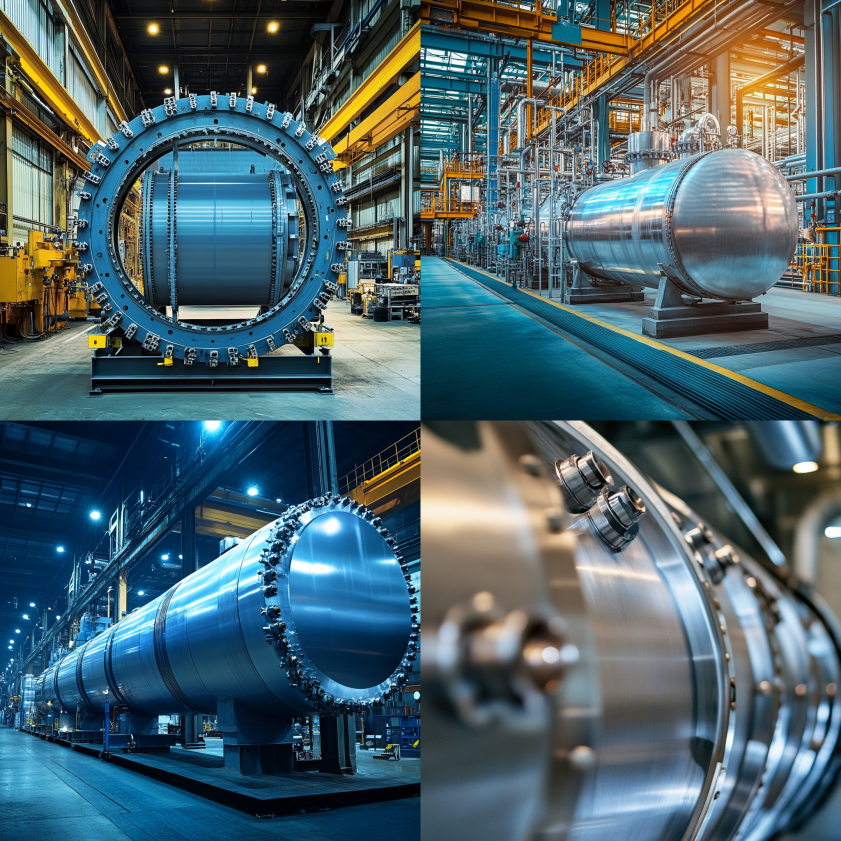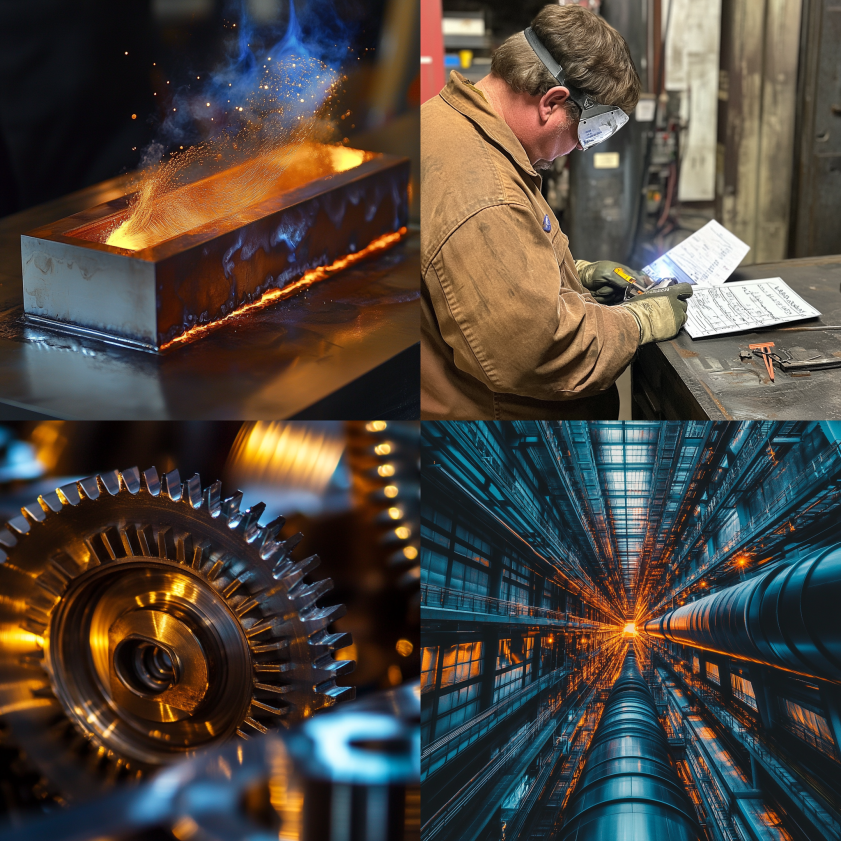

If you’ve ever asked yourself, “What does ASME steel stand for?”, you’re not alone. In the world of industrial engineering, pressure vessel design, and manufacturing, ASME is a critical term tied to safety, reliability, and performance.
ASME stands for the American Society of Mechanical Engineers, a global organization that develops technical standards used across various engineering disciplines. Founded in 1880, ASME was initially created to address steam boiler failures. Over time, it evolved to become a pillar of mechanical engineering, influencing how components are manufactured, inspected, and certified around the world.
ASME steel, in particular, refers to steel materials that conform to the organization’s strict standards—most notably, those outlined in the ASME Boiler and Pressure Vessel Code (BPVC). These standards ensure materials are capable of withstanding high stress, extreme pressure, and fluctuating temperatures.
ASME’s commitment to engineering safety has saved countless lives, not only in boiler rooms but also in oil refineries, power plants, and chemical processing facilities. When a steel material is ASME-compliant, it’s gone through rigorous processes of validation—ensuring it can perform under intense industrial conditions.

ASME standards don’t simply offer guidelines—they represent the baseline of safety and performance for critical infrastructure. When manufacturers use ASME steel, they are assuring stakeholders that their components have been vetted to perform under the most challenging environments.
For example, ASME Section II of the Boiler and Pressure Vessel Code specifies acceptable materials, including types of steel suitable for different pressure and temperature ranges. This can affect design decisions, heat treatment procedures, welding protocols, and non-destructive testing (NDT) methods.
In steel fabrication, ASME sets the standard for:
ASME-certified steel is commonly used in:
For instance, power generation facilities that rely on high-temperature steam systems demand ASME-certified materials to meet not just engineering goals, but regulatory mandates. Without these standards, the risk of catastrophic failure increases dramatically.
You can explore how ASME shapes safety requirements further through ASME’s official code and standards portal.
Understanding the specific codes under the ASME umbrella is essential for professionals who work in heavy industries. The most referenced of these is the ASME Boiler and Pressure Vessel Code (BPVC), which spans multiple sections, including:
Provides rules for welding procedures, welder qualifications, and materials joining. Some of the most commonly used ASME steel materials include:
Each designation carries specific mechanical properties, chemical compositions, and allowable service conditions. These classifications are especially important when choosing steel for mission-critical applications such as refineries, chemical plants, and nuclear power stations.
At Red River, our team works closely with clients to ensure the right ASME materials are chosen for every project, reducing risk and improving long-term performance.
From legal obligations to quality assurance, ASME steel is about far more than compliance—it’s about doing things right the first time.
Here are the key reasons why ASME steel is essential in modern industries:
When you’re operating under thousands of pounds per square inch of pressure, failure isn’t just costly—it’s dangerous. ASME steel provides the confidence that materials have been tested, qualified, and certified to withstand such extremes.
Many jurisdictions mandate ASME standards for equipment used in public utilities, transportation of hazardous materials, or nuclear power. Failure to use certified materials can lead to fines, shutdowns, or liability in the event of an accident.
Knowing the stress limits and fatigue performance of ASME steels enables engineers to optimize designs without overbuilding or compromising safety.
In the event of equipment failure, having documentation that your systems use ASME-compliant materials can be essential for legal and insurance processes.
ASME standards are widely accepted across Europe, Asia, the Middle East, and North America. When materials are certified under ASME, they can be integrated into multinational projects without conflict.
Whether you’re managing a refinery upgrade or building a new water treatment plant, choosing ASME-compliant steel reflects a commitment to safety and long-term operational success.
ASME steel isn’t just about materials—it’s about trust, performance, and safety. By adhering to rigorous standards developed by the American Society of Mechanical Engineers, manufacturers and engineers ensure that their structures and systems meet the highest levels of reliability. Whether it’s for building pressure vessels or designing industrial equipment, understanding what ASME steel stands for empowers professionals to make safer, smarter choices.
Red River specializes in the design and manufacturing of pressure vessels. We also fabricate related items such as prefabricated spools and skid packages.
Reach out to us today and experience the Red River difference. Where American-made products and American Values come together, we care more.
Yes. ASME steel adheres to strict codes that verify material strength, durability, and pressure tolerance—qualities not always required in non-ASME-certified steel.
ASME steel ensures a material’s capability to endure high-pressure and high-temperature environments, preventing failures in critical applications.
It’s a carbon steel plate primarily used for moderate- and lower-temperature pressure vessels. It offers excellent weldability and notch toughness.
The manufacturer should provide material test reports (MTRs) or certificates showing compliance with relevant ASME specifications. You can also verify through audits or supplier documentation.
Yes. ASME standards are recognized and accepted globally, particularly in industries like oil and gas, nuclear power, and pharmaceuticals.
No. Only fabricators who meet ASME’s quality and inspection standards—and have passed audits—can receive certification.
It is used in oil refineries, chemical processing plants, water treatment systems, and energy generation facilities, where material failure is not an option.
In the realm of industrial solutions, Red River emerges as a pioneer, offering a diverse range of custom-engineered products and facilities. Among our specialties is the design and production of Custom/OEM Pressure Vessels, meticulously crafted to meet individual client requirements, ensuring performance under various pressure conditions. Our expertise extends to the domain of prefabrication, where Red River leads with distinction.
The company excels in creating prefabricated facilities, modules, and packages, reinforcing its stance as a forerunner in innovation and quality. This proficiency is further mirrored in their Modular Skids offering, where they provide an array of Modular Fabricated Skid Packages and Packaged equipment. Each piece is tailored to client specifications, underlining their commitment to delivering precision and excellence in every project they undertake.